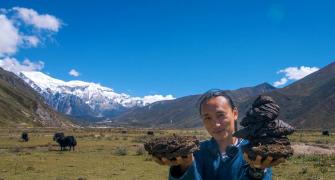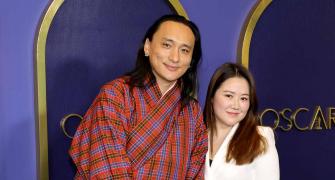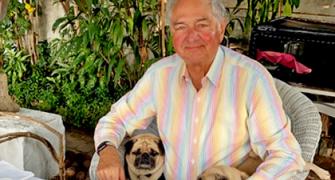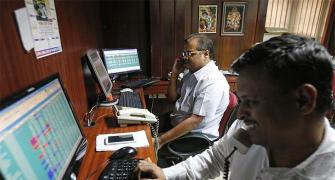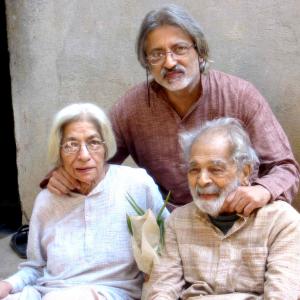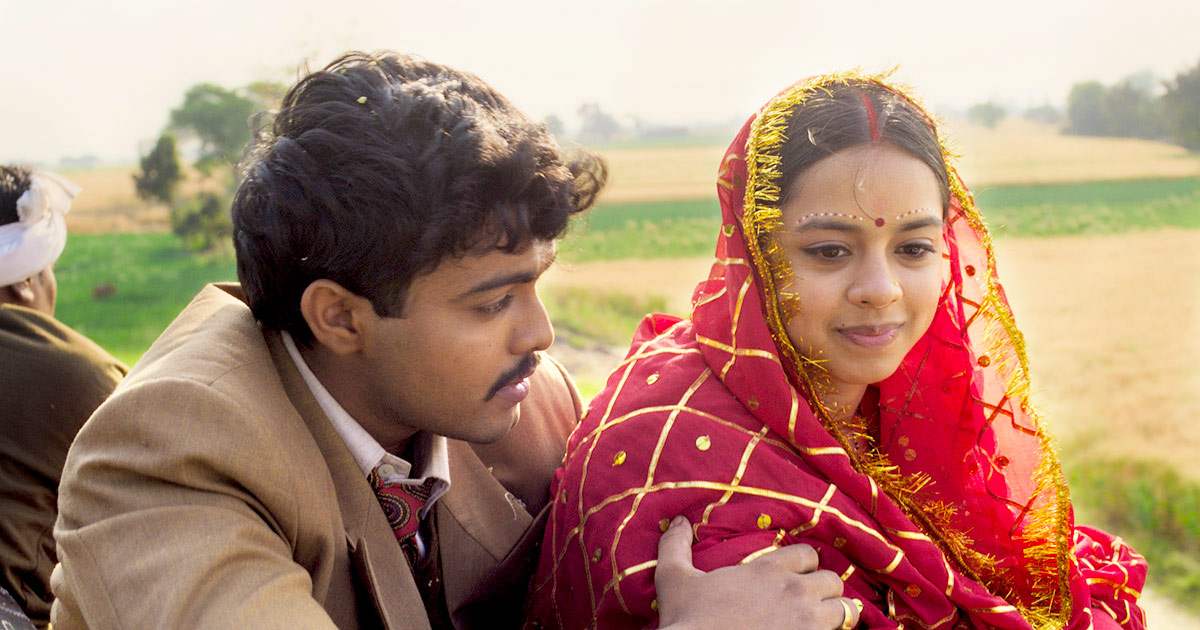'When democracy first came to Bhutan people had no idea and they were like 'What is that?' 'Oh it's that thing they have in India where the leaders are always fighting and arguing'.'
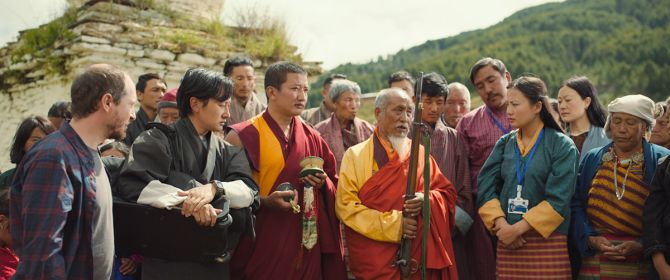
In 2019, Pawo Choyning Dorji, a Bhutanese monk turned film-maker, made a heartwarming film called Lunana: A Yak in the Classroom. A charming film about a young man from the city who travels to a remote part of Bhutan to teach students there, Lunana had a long and rough journey.
After months of facing rejections, Dorji was finally able to bring the film to the US.
It was eventually Bhutan's Oscar entry for the 2022 ceremony where it was nominated in the Best International Film category. It lost to the Japanese masterpiece, Drive My Car.
Dorji is now back with his second feature, The Monk and the Gun, which is also Bhutan's Oscar submission in the Best International Film category.
On Thursday, December 21, 2023, The Monk and the Gun was among the films shortlisted for the Oscar in the Best International Film category!
The Monk tells two parallel stories about the introduction of democracy in Bhutan and a monk who wants to build a stupa and bury guns underneath it.
The irony is that there are hardly any guns in Bhutan.
Even though the film is bigger in scope, it retains the innocence we saw in Lunana.
The Monk premiered at the Telluride Film Festival where it was quite a popular film. Later, it traveled to the Toronto International Film Festival and even the Mumbai Film Festival.
Aseem Chhabra spoke to Dorji in New York where the film-maker is busy managing the film's Oscar campaign.
Pawo, congratulations on another charming film! When I watched The Monk and the Gun, I noticed in the beginning, you have a lot more production houses and producers associated with this film. So how did your life really change after you made Lunana?
Lunana's journey was something so special. It was my first film.
I made it on my own with really no help.
I had no producers, agents or distributors.
To be frank, in the beginning of Lunana's life, there was a lot of failure and rejection.
There were moments where I doubted if film-making was the correct path for me.
But after the first seven-eight months and the Oscar nomination, the film's life took off.
I think that was really like capturing lightning in a bottle.
There was, of course, immense pressure, because an Oscar nomination is like the pinnacle of one's career. To achieve it with your first film, you are left with nowhere else but to fall down.
So there was that fear.
But then I think having that success gave me the encouragement and confidence to realise that this is something I do want to pursue. The initial failure and rejection helped me keep myself grounded.
When I started The Monk and the Gun, I was able to get into it with a clear head. I was aware of what I needed, how much I needed.
Yes, there were many entities that were involved: Different production houses and funding agencies.
Just recently, the Doha Film Institute came on board to help.
But from the beginning itself, I was conscious that I wanted the film to be small.
Just because I was nominated for an Oscar I didn't want to make a multi-million dollar film. I felt if I had any more, the heart of the film could get lost.
During Lunana's campaign, Ang Lee told me never lose that heart of innocence that you seem to have. He said he had it for a while and now he felt he had lost. I think Ang's advice helped keep the film grounded.

I find it fascinating, given the fact that Bhutan is right next to India, China and Nepal, yet it remained such an innocent country for so long.
There are the references you make about that from the beginning, when the men are talking about elections in India, where politicians start to beat each other up.
Or one of the characters says to the election officer, 'Why are you teaching us to be rude? We are polite people.'
So what is it about this politeness and happiness element in Bhutan? How has Bhutan managed to survive and live through that?
I think it's our culture and spiritual traditions that are rooted in Buddhism.
Bhutan is the last remaining Vajrayana Buddhist kingdom in the world.
Because of that, right from our monarch, down to the common people, there is only one goal in everyone's life: To achieve enlightenment and happiness.
But it is happiness in terms of the Buddhist definition.
We believe we live in a world where our happiness is directly interconnected and interdependent and on all those phenomenon and individuals around us.
There is a very altruistic approach to life.
Our neighbour Nepal makes hundreds and thousands of dollars every day because one person climbing Mount Everest has to pay that much.
Bhutan has so many mountain peaks to climb.
Actually, the highest unclimbed mountain peak is in Bhutan.
But we stubbornly cling on to the belief that if our mountains are clean, our environment is clean.
Forest coverage by constitution cannot drop below 65 percent. These rules, we believe will lead to perfect circumstances around us which will lead to enlightenment and happiness for the beings. It helps us to connect to our own unique way of life.
But of course, that is changing.
For example, the phallus is a very important symbol for our culture. It is supposed to break down obstacles to enlightenment.
But with the coming of moderniwation, we have become very embarrassed about the phallus and the symbol is slowly disappearing.
In the film, I wanted to counter the coming of westernization, which was the gun with something that was disappearing in Bhutan.

Your film made me think of the fact that I am so disappointed with democracy, whether it is in the US or India. I don't want to get into politics but I began to think, is democracy really essential? You have mentioned you were a student of political science in the US.
Why did democracy come to Bhutan? Do you think Bhutan is any better because of it?
I was talking about the phallus.
You know, when there is a culture that venerates a symbol like the phallus in the modern world, there are a lot of people whose eyebrows get raised and eyes are rolling.
Some people think we are very barbaric and shamanistic.
When I talk about this during film screenings, people even ask about the role of women in our society.
They are very surprised to hear that we are a matriarchal society.
Land, house all go to the eldest daughter.
After the wedding, the groom moves to the bride's house.
At the same time, our traditions in the modern world are kind of looked down upon like 'that's not the way to do things.'
Similarly, when there is a monarch, a singular ruler of a country, the modern mind is very quick to tag that individual as a dictator, especially when the country is so isolated like Bhutan. Many would think it was a hermit kingdom, where TV and Internet were not allowed, so it had to be unhappy and dictatorial.
Bhutan faced a lot of pressure from the outside institutions to modernise and become a democracy.
At the end of the day, you have to remember that Bhutan is still a very poor country. We depend a lot on foreign aid, and lot of it comes from democratic countries.
I remember back in the day, George Fernandes, the Indian defence minister, made the comment that India is the world's largest democratic country. And one country that is closest to India is not a democracy.
But has it helped Bhutan? It's difficult to say, because democracy is still in its infancy stages right now.
I was looking at the history of democracy in the US. And it was only after 80 years, and many rounds of elections that we have the ideologies of the right, conservatives and the left liberals forming.
In Bhutan right now, if you look up any political party, its first motto is 'we want to serve the king or we want to bring gross national happiness.' If you ask people who they are voting for, they always say, 'We will work with this person because he seems like someone who will serve the king.'
I always draw inspiration from real stories, actual factual stories. So the lady who asks the election officer 'Why are you teaching us to be rude?' that actually happened.
When democracy first came to Bhutan people had no idea and they were like 'What is that?' Oh it's that thing they have in India where the leaders are always fighting and arguing.'
When I screened the film to Bhutan's film committee, they thought my film was good but they were concerned about that line. They wanted me to change that line. They said, 'We don't want to offend India.'
I tried to tell them that Indians have a great ability to laugh at themselves, but they insisted I change it. I had to change that line for the release in Bhutan but a lot of Indians seem to really like that line.

In the recent press conference, you talked about how you got those two AK-47 guns from India, since there are no guns available in Bhutan. And I was thinking it's really a sad state of affairs, what India has become and how I wish India could learn something from Bhutan. Of course, America has a huge issue with gun violence.
With this film, I wanted to tell the story of what happened in Bhutan. And I wanted that to be like a mirror through which different countries, different people could see a reflection of themselves and maybe learn something from it.
Also, I didn't want people to think it is pro-monarchy or anti-guns.
I don't know how the film will do it when it is released but people from all sides of the political spectrum seem to appreciate it.
At the Telluride Film Festival, many conservatives, including I heard some members of the National Rifle Association, seemed to like it.
On the other side, we have individuals like Michael Moore who is totally on the other side, who have really become champions of the film.
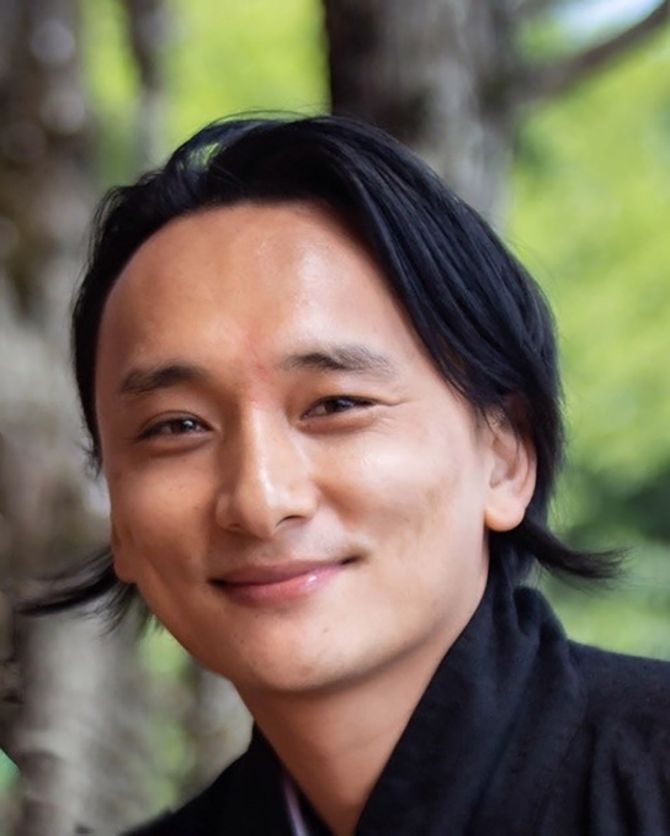
I know your family is based in Taiwan. Do you still travel a lot to India?
Actually, when you live in places like Taiwan and the last month, I have been to the US, places like India are needed to give the jolt of inspiration to create.
I have very deep connections with India.
I was born in a tea plantation hospital in Darjeeling.
I did my high schooling in Kodaikanal in Tamil Nadu.
I lived in Himachal Pradesh where I was studying Buddhism, before realising I wanted to be a film-maker. So India has a very close place in my heart.
Are you working on another project?
For many years, I have been a big fan of Indian novels and there was one book that always intrigued me: Manil Suri's Death of Vishnu.
I am happy to share that I have finally got the rights for the book.


